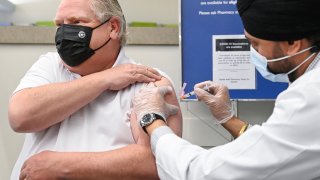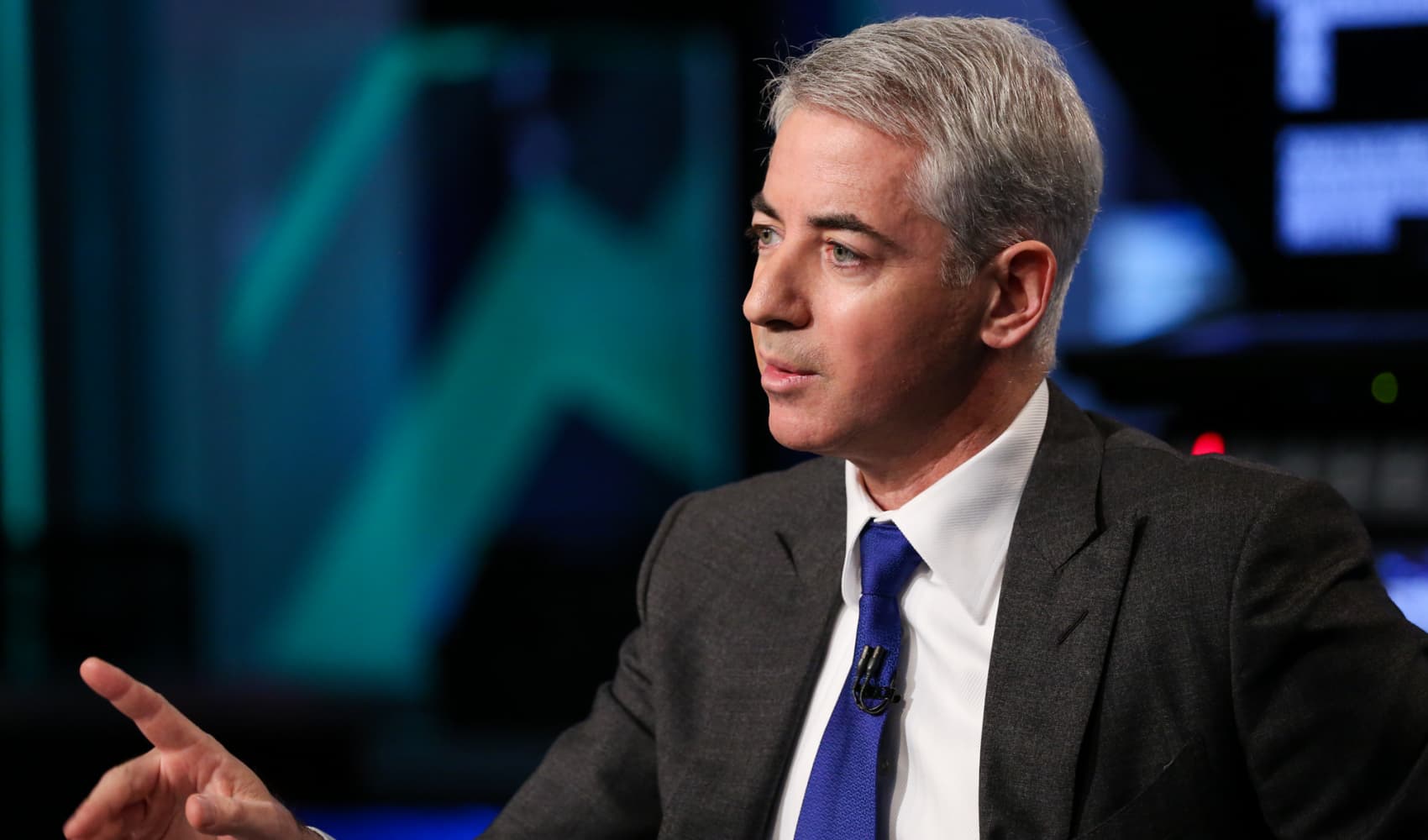
AstraZeneca is not yet sure whether a third dose of its Covid-19 vaccine will be necessary for continued protection against the virus, CEO Pascal Soriot told CNBC on Thursday.
Soriot told "Squawk Box Europe" that the company did not have a "precise answer" on whether booster shots would be needed.
"There are two dimensions to this immunity — antibodies [which] decline over time, but the second, very important dimension of vaccination is the so-called T-cells. They tend to protect people against severe disease, but they also provide durability," Soriot explained.
Get New England news, weather forecasts and entertainment stories to your inbox. Sign up for NECN newsletters.
"With the technology we use, we have very high production of T-cells. We're hoping we can have a durable vaccine that protects for a long period of time. So whether we will need a third booster or not is not clear yet, only time will tell."
T-cells are a kind of white blood cell that play different roles in defending the body against an invading virus. For instance, they may attack the pathogen or support different white blood cells in the production of antibodies.
Antibodies prevent viruses from invading cells but don't last as long as T-cells.
Money Report
Soriot added that the only way to be sure whether booster shots would really be needed was to watch whether the vaccine's efficacy declined over time.
"We know that [our vaccine] has a decline of antibodies [over time] — we haven't seen yet a decline of efficacy but it's a bit early to judge, only time will tell, and I hope the T-cells will provide this durable, long-term protection."
On Wednesday, Pfizer CEO Albert Bourla told CNBC's "The Exchange" that the company was "very, very confident" that a third dose of its vaccine would provide enough immunity to protect against the faster spreading delta variant of Covid.
Bourla's comments came after a study found the effectiveness of the Pfizer-BioNTech vaccine declined by an average of 6% every two months, and that the vaccine was most effective between one week and two months after receiving the second dose of the shot.
Bourla also told CNBC on Wednesday that efficacy of the vaccine dropped to around 84% four to six months after the second dose.
Vaccine earnings boost
AstraZeneca's revenue from its Covid-19 vaccine reached almost $1.2 billion in the first half of the year, the company announced on Thursday.
The income from the vaccine sales helped the Anglo-Swedish pharmaceutical giant increase its total revenue for the first half by 23% to $15.5 billion, AstraZeneca announced in its earnings report.
Its earnings from the Oxford-AstraZeneca Covid-19 vaccine in the second quarter more than tripled from the previous three months.
Without vaccine revenues, the company's half-year income rose 14% from the first half of 2020.
Following its acquisition of U.S. pharmaceutical company Alexion, AstraZeneca updated its full-year guidance, predicting total revenue to increase by a low 20s percentage. Income from its Covid-19 vaccine was not factored into the guidance, given "heightened risks and uncertainties from the effects of Covid-19, including the impact from potential new medicines for Covid-19 in clinical development."
The company also noted that variations in its financial performance could be expected to continue between quarters.
Almost 4 billion shots of Covid-19 vaccines have been given worldwide, data collected by Bloomberg shows.
According to Our World in Data, vaccination programs have now started in 214 countries and territories, most of which have approved the Oxford-AstraZeneca vaccine for use.






